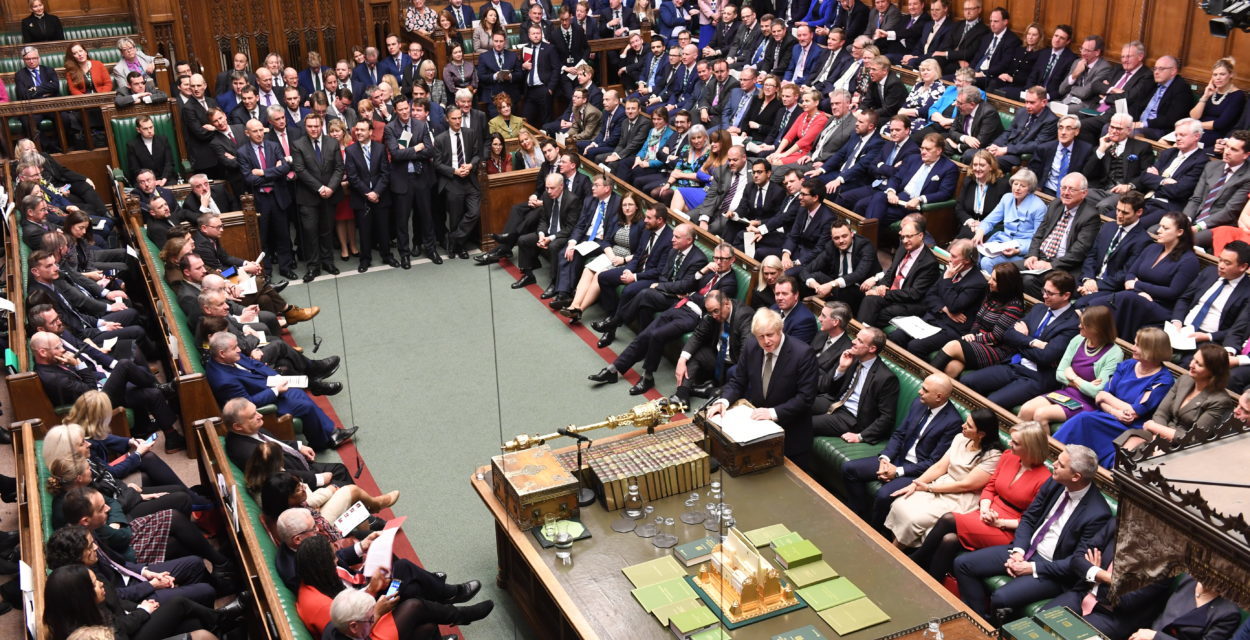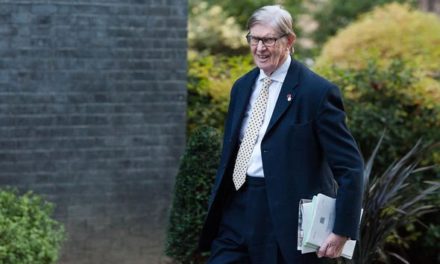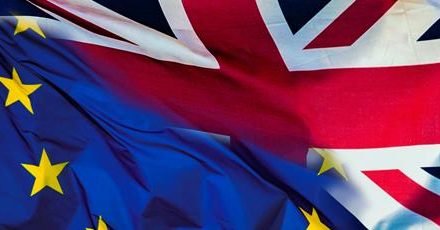Boris Johnson’s Withdrawal Agreement was approved by the House of Commons yesterday after MPs voted to give a Third Reading to the European Union Withdrawal Agreement Bill by a majority of 99. During the debate, Sir William Cash made the following speech and interventions.
Sir William Cash: I refer to what has just been said from the Scottish nationalist Benches because in fact this is about the United Kingdom, which made the treaty in the first place and abdicated its responsibility and its sovereignty, but is now reasserting its status within the United Kingdom. It is about parliamentary sovereignty, and it is also about democracy because that decision was taken by the British people in the full knowledge of the voters of the United Kingdom, not any one part of it.
Paul Blomfield: I take the hon. Gentleman’s point. We had a whole debate around sovereignty in which my hon. Friend the Member for Bristol West (Thangam Debbonaire) made some very astute observations, but the hon. Gentleman needs to recognise my underlying point: the decision of the general election is not a mandate to bulldoze through a particular version of Brexit at any cost on all the peoples of the United Kingdom, and the next few months must be approached with sensitivity and caution if we are to stay together as a United Kingdom.
Sir William Cash: I say, first, how much I respect the hon. Lady. She sits on the European Scrutiny Committee, which I have had the honour to Chair for some time.
On the question of how the negotiations were conducted—as she knows, we have been conducting our investigation into that—a very important point that we made was that the terms and conditions were set by the European Union and accepted by the UK. That will change now because of the general election result—I just thought that I would make that observation.
Dr Whitford: I thank the hon. Gentleman for his contribution. I think that the tone was set when we saw the former Brexit Secretary, the right hon. Member for Haltemprice and Howden (Mr Davis), turn up to the first meeting with not a piece of paper in his hand to meet the EU negotiators. That was rather naive.
Mr Owen Paterson (North Shropshire) (Con): I heartily congratulate you on your re-election, Mr Deputy Speaker, and I wish you and the new team the very best of luck in your endeavours as you work with the new House.
I congratulate the hon. Member for Central Ayrshire (Dr Whitford) on her speech. She made her points very well, but she will not be surprised that I disagree with virtually every single word. Above all, I disagree with her attitude and the gloom and the misery on the Opposition Benches, when I see this as a day of great celebration.
I also congratulate the hon. Member for Weaver Vale (Mike Amesbury) on coming top of the private Members’ Bill ballot today; I hope he chooses a subject that gets agreement across the House. A long time ago, in 2005, I came 16th in the ballot. I must acknowledge the part played by my near constituency neighbour, my hon. Friend the Member for Stone (Sir William Cash). He and I worked together closely drafting a private Member’s Bill, the European Communities Act 1972 (Disapplication) Bill, in which was used the memorable “notwithstanding” phrase, in clause 1(2):
“This subsection applies to any enactment which includes the words: ‘The provisions of this enactment shall take effect notwithstanding the provisions of the European Communities Act 1972.’”
Sir William Cash: Is my right hon. Friend aware that the wording of this Bill’s parliamentary sovereignty clause, clause 39, which is about to pass its Third Reading, is exactly the same as that in our private Member’s Bill and in the amendment I tabled in 1986?
[Interruption.] And I shall give way to one of them now.
Sir William Cash: I thought it might be helpful if I could distinguish ourselves from what the hon. Gentleman described as the Farageists, for the simple reason that UKIP and now the Brexit Party were never going to form a Government. They could therefore never negotiate, nor could they legislate and nor could they deliver Brexit. They have now been reduced to dust by the decision that was taken by the British people, including in Labour leave marginal constituencies. It is the Conservative party that has now come back into its own and is doing the right thing for the right reason in the national interest.
Pete Wishart: I am so grateful to the high priest of hard Brexiteers. The reason that UKIP and the Farageists—whatever incarnation they are on just now—have disappeared is that they have become the Conservative party. Their whole agenda has been accepted and subsumed into the Conservative party so that it is almost impossible to tell the modern Conservative party from the UKIP and the Farageists of the past.
Sir William Cash: The Maastricht rebellion took place in 1992-93, long before either UKIP or the Brexit party was even really thought of.
Sir William Cash (Stone) (Con): First, Mr Deputy Speaker, I congratulate you on your successful re-appointment. Thank you for everything you have done for us in the past.
I welcome the hon. Member for Putney (Fleur Anderson) to the House of Commons. Her speech was very measured. I do not agree with much of it, as she will expect, but it is a pleasure to have her in the House. I worked extremely closely with her predecessor, Justine Greening. The hon. Lady may not know this, but the International Development (Gender Equality) Act 2014, which I introduced as a private Member’s Bill, got through despite being 16th in the ballot largely because of the support I had from her predecessor, as well as Opposition Members and many others, including Glenys Kinnock and Mariella Frostrup. Justine Greening put real effort and determination into getting the Bill through and it was a real privilege for me to work with her. The purpose of the Bill was to make sure that women and children in the third world and developing countries were protected against female genital mutilation and things of that sort. In saying all that, I want to make it clear that there is a degree of continuity of some sort between the hon. Lady’s speech and mine, although I have to dissociate myself from remarks of hers on which I will not comment right now.
I always enjoy speeches by the hon. Member for Perth and North Perthshire (Pete Wishart)—they are such fun. He comes at us 100% and there is never any let-up. I pointed out that we Maastricht rebels—I had the honour to lead that rebellion in 1992-93—acted as we did because for us it was about democracy and the benefits that will now come to us as we leave the European Union. The European Union was going to take the democratic decision making of this country and hand it over to what was, in effect, a European government. As I said yesterday, parliamentary sovereignty and democracy run together. We are not “hard Brexiteers”; we are democrats. We are people who believe that this country should be governed by the people, that people should be governed by themselves, and I would have thought that SNP Members, above all others, understood that.
(…)
It may surprise the hon. Gentleman to hear that, while I am a fervent believer in the United Kingdom, which includes Scotland, Northern Ireland, Wales and England, I do understand, for reasons not far removed from my reasons for wanting the UK not to be subjugated to the European Union, why the hon. Member for Perth and North Perthshire and his colleagues indulge this passion—understandable but wrong—for leaving the United Kingdom. I understand where they are coming from, so to that extent I appreciate some of the remarks he made, but I disagree fundamentally regarding the outcome they desire. It would lead to a lot of trouble for Scotland were it to leave the United Kingdom, as the referendum demonstrated.
The European Union (Withdrawal Agreement) Bill is not just about Brexit. It is primarily about the United Kingdom and our future. The reason why we adopted the position we took on Maastricht, and later on Nice, Amsterdam and Lisbon, and in the debate of the past few years and on the referendum, hinges on one simple principle: the ability of the people of this country to govern themselves through their elected representatives on the basis of their free choice in general elections. We are not little Englanders or trying somehow to make our country less democratic. We fought this battle for democracy and the rights of our own people, our own voters. That is why I am delighted that we now have a significant majority and will be able to put into effect the right of the British people to govern themselves through a range of policies, unconstrained by the European Union and the European Commission.
Angus Brendan MacNeil: The argument the hon. Gentleman is making about voters getting who they vote for and governing themselves is pertinent in Scotland. His party have been rejected by 75% of the people of Scotland. We have an unelected Tory Government governing Scotland. Surely he sees the justice of being able to ask the Scottish people whether they want to continue with a Government that 75% of them have rejected, and what they want to do about the European Union, where 62% of them want to remain.
Sir William Cash: If the people of Scotland ever were to obtain independence and stay in the European Union, the extent to which they would be subjugated in a range of areas—fishing and many others—would become very apparent to them. That would be extremely damaging to the Scottish economy. Through the qualified majority votes of other countries, Scotland would find that, as a relatively small country, the experience would not be at all advantageous.
Sir Charles Walker (Broxbourne) (Con): Is it not so nice, after so much anguish over the past three years, that tonight we are at last delivering on the result of this referendum, a democratic vote that we are now respecting?
Sir William Cash: I so much agree with what my hon. Friend has said, because he has been with us right the way through the passage of this over the past decade and more. People on this side of the House have fought, sometimes against the establishment, in order to achieve this objective. I can only thank the British people with all my heart for the decision they have taken. We have been the catalysts. We have tried to present the arguments. If the hon. Member for Perth and North Perthshire is right at all, it is about the fact that there has been a victory in the general election: the British people have spoken and they have supported the idea of leaving the EU, and we will do so accordingly on 31 January.
I wish to make a further point. The decision to leave was taken by the British people, but not on a party political basis. The argument in this House always gravitates around party politics, but the decision in the referendum was taken by the British people in their individual homes; at breakfast or on the night before they sat around and talked to one another, asking, “What are we going to do tomorrow?” They made that decision but then found that remainer MPs, whether on the Opposition Benches or even on our Benches, were repudiating the decision that the individual voters had made, whether they came from Labour, Liberal Democrat or, more likely, Conservative constituencies. They deeply resented the fact that they had decided, with their families, to go to the ballot box to vote to leave the EU in that referendum and then found, to their intense annoyance, fury and disappointment, that their Member of Parliament had used the position they had in this House to frustrate the decision that the people had taken. That is why so many Labour Members lost their seats. People in this House did not appreciate the fact that in Labour leave marginals—in particular, in places north of Coventry in coal and steel communities—the European Coal and Steel Community and the massive subsidies given to the other countries had deprived people of their livelihoods, with much of the collapse of the steel and coal industry being driven by the anti-competitive nature of the European Coal and Steel Community framework. If we were to take a map of the UK and superimpose upon it the coal and steel communities, we would see a direct correlation with the decisions taken in the general election, when people drove out Labour Members of Parliament because they were not doing what voters wanted them to do. They wanted to leave the EU, and the Labour Members who were driven out had refused to allow them to determine their own constituency and national interest. That is where the problem lies. The Labour party simply cannot bring itself, even now, to understand the feelings of the people north of Coventry and in other parts of the country who found that their own Member of Parliament had let them down.
There was a simple reason for the referendum: it was clear that the collusion between the two Front-Bench teams in 1992-93 would lead to our having to stay in the European Union and accept the Maastricht treaty. That was what the referendum was all about. We now have a huge opportunity, in a completely new environment where we take control of our own laws in this House in accordance with proper democratic principles, to create a new global trading relationship to ensure that we are able not only to govern ourselves but to work in co-operation with other countries on our own terms, not on the terms that were laid down by the European Union. I look to the Secretary of State in the full knowledge that he and the Prime Minister, and any other Ministers involved in developing policies on the European Union over the next year or two, will do so on our terms and conditions and not those imposed upon us by the European Union.
This is a great moment in our democratic history; furthermore, it is a great tribute to the British people, who listened to the arguments that were presented to preserve their democracy. I have said this before and I will never apologise for saying it: the decisions were taken for democratic reasons. That is why we have ended up getting back our sovereignty, which we abdicated in 1971, after which we gradually gave up the veto. We will now be able to govern ourselves. It is a great tribute to the British people, and to the Members of Parliament who were returned in the election, that they will, through the majority we now have and with our Prime Minister, guarantee that this country will have a bright and effective future.



